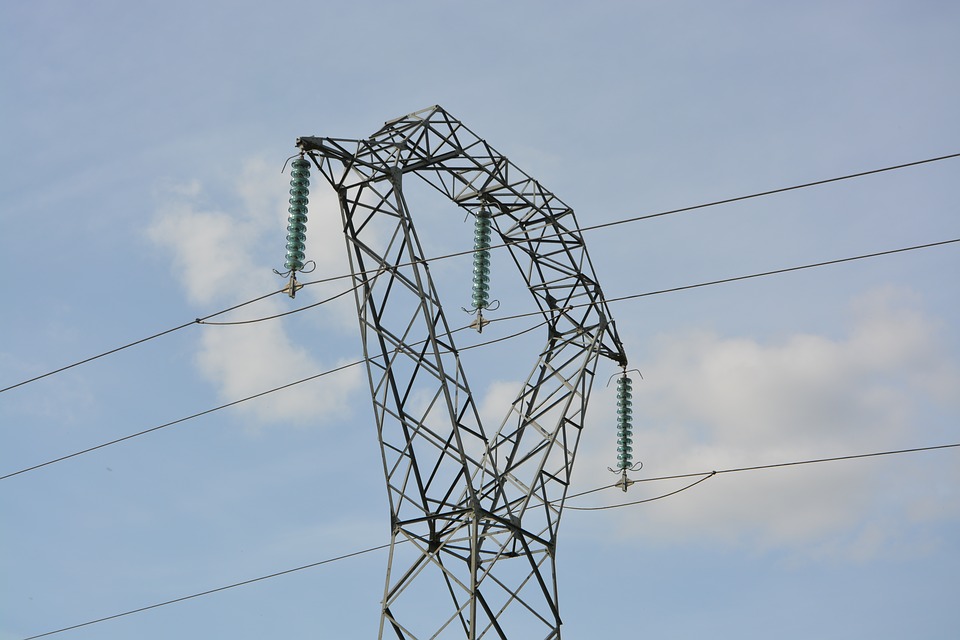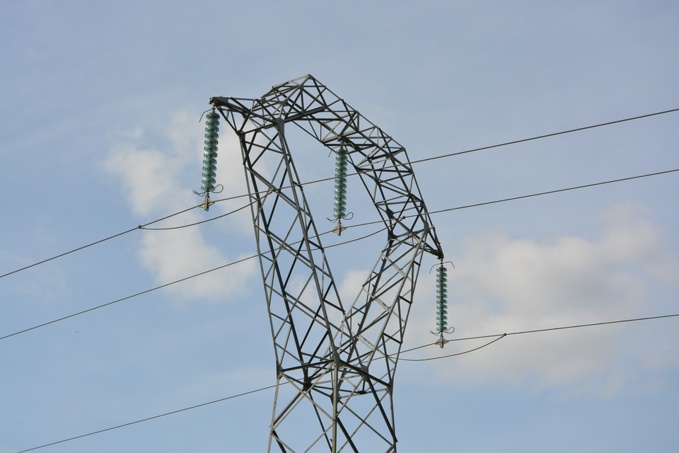China is financing most of the new power generation projects in the countries of Sub-Saharan Africa. From 2014 to 2017, Chinese banks have invested an average of $ 5 billion annually in energy projects, making Beijing the main electricity producer in the region. Investments are growing as the infrastructure of the New Silk Road is created. This titanic project, involving construction of ports, roads and railways and formation of special economic zones around the world, cannot function without energy.
However, instead of financing “green” projects, China mainly invests in initiatives that involve use of fossil fuels and pollute the environment. Why? Because these investments serve its economic interests and allow the Chinese to export their coal and their technologies. Paradoxically, Beijing - the world's largest investor in environmental projects - is also recognized as the most polluted city on the planet. The Chinese economy is still largely dependent on coal; however, by investing heavily in solar, wind and hydropower, Beijing has become the main producer of clean energy in the world.
Showing increasing concern for environmentally friendly production, at the same time China is increasingly polluting the air of its African partners. Currently, a quarter of all coal-fired power plants in the world (outside of the Eastern country) are being built or funded by Chinese companies. Most of the coal used to produce electricity will come from or is already coming from China. China's industry, the world's largest coal producer, suffers from overcapacity. At home, the Chinese are reducing use of coal due to the fact that it pollutes the environment too much, so African power stations will work on it.
The latest report by the Institute for Energy Economics and Financial Analysis drew attention to similar inconsistency of Beijing policy and environmental risks associated with the New Silk Road concept. The report says that China has already allocated more than 21 billion dollars to finance activities of coal-fired thermal power plants, the total capacity of which amounted to 30 GW.
According to the report, two thirds of the power plants that are being built by the Chinese in South Africa, Zimbabwe, Kenya, Tanzania, Ghana and Madagascar are considered “dangerous” or “very dangerous” to the environment. All thermal power plants in Kenya, Ghana and Cote d'Ivoire are funded and built by China. In South Africa and Zimbabwe, the Chinese contribution to the production of electricity at thermal power plants reaches 75%.
Recently the China Development Bank signed an agreement in South Africa to provide $ 4 billion for the construction of two large coal-fired power plants: Kusile and Medupi. In Zimbabwe, four coal plants are built with the help of Chinese loans of $ 2 billion. Zimbabwe, which spends $ 5 million a week on electricity imports from South Africa and Mozambique, certainly needs this help, but it could be more environmentally friendly.
At the same time, the Chinese export their environmentally friendly technologies: solar panels, wind turbines, hydroelectric and nuclear power plants. However, energy, so necessary for economic growth, is mainly produced from non-renewable sources. Africa receives three quarters of its energy from fossil fuels, the use of which is accompanied by emission of greenhouse gases into the atmosphere.
Nevertheless, since 2009, China has systematically emphasized importance of renewable energy sources. As early as 2009, PRC Prime Minister Wen Jiabao initiated implementation of the “One Hundred Clean Power Plants for Africa” plan. And during the energy forum, which was held in September 2018 at the China-Africa summit, the country promised to increase the number of investments in renewable energy. Although the Chinese are making themselves diligent students at international summits, and can boast of taking the place of the world's largest investor in renewable energy, these achievements have little in common with their activities on the African continent.
We know how difficult it is to find a way back. As soon as a country becomes dependent on fossil fuels for electricity generation, ensuring transition to renewable energy sources becomes an even more complex and expensive task. Europe understands something about this. In addition, by investing huge amounts in a green economy, Chinese industry is still heavily dependent on coal, and its enterprises emit the largest amount of greenhouse gases in the world.
The analysis showed that costs of most African projects in the field of power engineering are more expensive than their counterparts. Extraction of coal in Africa or its import usually requires creation of infrastructure from scratch, which also determines the long-term structural dependence of the economy. A third of the continent’s construction projects are Chinese-African joint ventures that are becoming increasingly profitable for Beijing and involve coal exports to Africa.
Most Chinese players are state actors. While China Development Bank and Eximbank are issuing loans, the State Grid Corporation of China is building infrastructure, and the State Power Investment Corporation and Huadian Corporation are in charge for power generation. Thus, the Chinese government is directly involved in what is happening, and that it should look for other, safe for the environment, ways of doing business.
If China really wants to become one of the world leaders in the fight against global warming and to fulfill the commitments made at international summits, it needs to act within the framework of environmental policy in Africa. Today, China remains the only country that is able to build green networks and invest in the future of the continent.
source: lemonde.fr
However, instead of financing “green” projects, China mainly invests in initiatives that involve use of fossil fuels and pollute the environment. Why? Because these investments serve its economic interests and allow the Chinese to export their coal and their technologies. Paradoxically, Beijing - the world's largest investor in environmental projects - is also recognized as the most polluted city on the planet. The Chinese economy is still largely dependent on coal; however, by investing heavily in solar, wind and hydropower, Beijing has become the main producer of clean energy in the world.
Showing increasing concern for environmentally friendly production, at the same time China is increasingly polluting the air of its African partners. Currently, a quarter of all coal-fired power plants in the world (outside of the Eastern country) are being built or funded by Chinese companies. Most of the coal used to produce electricity will come from or is already coming from China. China's industry, the world's largest coal producer, suffers from overcapacity. At home, the Chinese are reducing use of coal due to the fact that it pollutes the environment too much, so African power stations will work on it.
The latest report by the Institute for Energy Economics and Financial Analysis drew attention to similar inconsistency of Beijing policy and environmental risks associated with the New Silk Road concept. The report says that China has already allocated more than 21 billion dollars to finance activities of coal-fired thermal power plants, the total capacity of which amounted to 30 GW.
According to the report, two thirds of the power plants that are being built by the Chinese in South Africa, Zimbabwe, Kenya, Tanzania, Ghana and Madagascar are considered “dangerous” or “very dangerous” to the environment. All thermal power plants in Kenya, Ghana and Cote d'Ivoire are funded and built by China. In South Africa and Zimbabwe, the Chinese contribution to the production of electricity at thermal power plants reaches 75%.
Recently the China Development Bank signed an agreement in South Africa to provide $ 4 billion for the construction of two large coal-fired power plants: Kusile and Medupi. In Zimbabwe, four coal plants are built with the help of Chinese loans of $ 2 billion. Zimbabwe, which spends $ 5 million a week on electricity imports from South Africa and Mozambique, certainly needs this help, but it could be more environmentally friendly.
At the same time, the Chinese export their environmentally friendly technologies: solar panels, wind turbines, hydroelectric and nuclear power plants. However, energy, so necessary for economic growth, is mainly produced from non-renewable sources. Africa receives three quarters of its energy from fossil fuels, the use of which is accompanied by emission of greenhouse gases into the atmosphere.
Nevertheless, since 2009, China has systematically emphasized importance of renewable energy sources. As early as 2009, PRC Prime Minister Wen Jiabao initiated implementation of the “One Hundred Clean Power Plants for Africa” plan. And during the energy forum, which was held in September 2018 at the China-Africa summit, the country promised to increase the number of investments in renewable energy. Although the Chinese are making themselves diligent students at international summits, and can boast of taking the place of the world's largest investor in renewable energy, these achievements have little in common with their activities on the African continent.
We know how difficult it is to find a way back. As soon as a country becomes dependent on fossil fuels for electricity generation, ensuring transition to renewable energy sources becomes an even more complex and expensive task. Europe understands something about this. In addition, by investing huge amounts in a green economy, Chinese industry is still heavily dependent on coal, and its enterprises emit the largest amount of greenhouse gases in the world.
The analysis showed that costs of most African projects in the field of power engineering are more expensive than their counterparts. Extraction of coal in Africa or its import usually requires creation of infrastructure from scratch, which also determines the long-term structural dependence of the economy. A third of the continent’s construction projects are Chinese-African joint ventures that are becoming increasingly profitable for Beijing and involve coal exports to Africa.
Most Chinese players are state actors. While China Development Bank and Eximbank are issuing loans, the State Grid Corporation of China is building infrastructure, and the State Power Investment Corporation and Huadian Corporation are in charge for power generation. Thus, the Chinese government is directly involved in what is happening, and that it should look for other, safe for the environment, ways of doing business.
If China really wants to become one of the world leaders in the fight against global warming and to fulfill the commitments made at international summits, it needs to act within the framework of environmental policy in Africa. Today, China remains the only country that is able to build green networks and invest in the future of the continent.
source: lemonde.fr



















